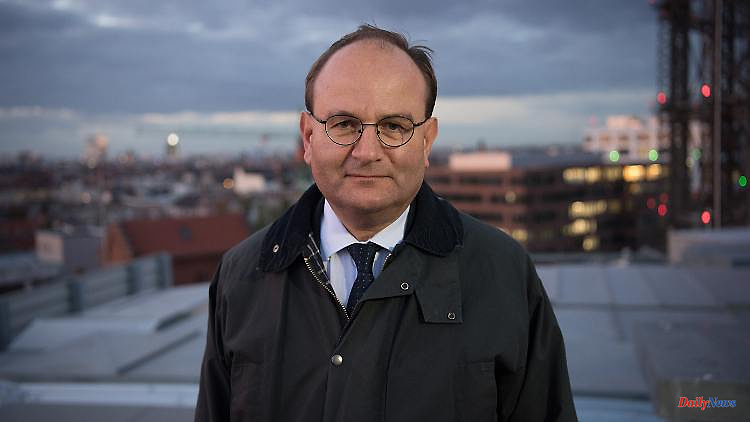According to Ottmar Edenhofer, Germany is not only threatened by a gas shortage in winter. The climate economist also warns of a "supply and security crisis" with regard to the electricity sector. He gives several reasons for this - and is open to a limited extension of nuclear power plant runtimes.
The climate economist Ottmar Edenhofer warns of a "supply and security crisis" in the electricity sector for the winter. The director of the Potsdam Institute for Climate Impact Research (PIK) told the Funke media group that the causes were the "large failures of nuclear power in France, the dried-up rivers, through which hardly any coal can reach the power plants, and the rising electricity prices".
In this situation, Edenhofer was also open to a limited extension of nuclear power plant runtimes. However, this "only makes sense if it helps to prevent a short-term supply crisis in the electricity sector," Edenhofer clarified. He was also unable to judge whether the so-called stretching operation discussed would work, whether otherwise new fuel rods could be obtained quickly and "whether the safety requirements are met for continued operation".
Edenhofer dismissed a general renunciation of the nuclear phase-out as "absurd". There is no long-term future for nuclear energy in Germany. "The exit as a whole must not be questioned under any circumstances." Instead, the expansion of renewable energies must be promoted. However, this is exactly what is currently stalling, he criticized.
Despite the additional problems caused by the drought, "caused by the climate change that is already taking place" and the consequences of the Ukraine war, Edenhofer still believes that the German climate goals are achievable. However, "the gap between the goals and their implementation has become even larger as a result of the Ukraine war," he told the Funke newspapers.
However, there are sometimes opposing effects with regard to achieving the climate goals. "In the transport and building sectors, it could be that we achieve them this year because oil and gas prices have risen so much," said the climate economist. "And in the energy sector we are now generating more coal," says Edenhofer, but emissions there are capped by European emissions trading. "As long as it works, no more CO2 will be emitted overall."












